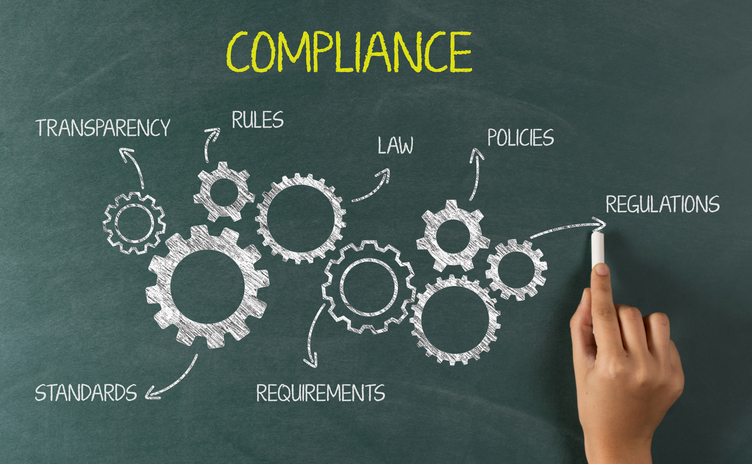Understanding Retirement Plans: A Guide for Small Business Owners, CFOs, and HR Professionals

Retirement plans are one of the most valuable benefits an employer can offer to attract and retain talent. However, selecting and managing a retirement plan can feel overwhelming, especially for small business owners, CFOs, and HR professionals who are already juggling multiple responsibilities. Beyond choosing the right plan, it’s essential to understand fiduciary responsibilities and how to manage risks effectively.
In this blog, we’ll cover the basics of retirement plans, explain fiduciary roles, and provide practical insights for small business owners, CFOs, and HR professionals.
What Is a Retirement Plan?
A retirement plan is a financial arrangement set up by an employer to help employees save for retirement. The most common types of employer-sponsored retirement plans are:
- 401(k) Plans: Allow employees to contribute pre-tax or post-tax (Roth) earnings toward retirement. Employers often offer matching contributions.
- Simple IRA Plans: Similar to 401(k)s but easier to set up and maintain for small businesses.
- SEP IRAs (Simplified Employee Pension Plans): Primarily used by small businesses and self-employed individuals, these allow employers to make tax-deductible contributions for themselves and their employees.
- Profit-Sharing Plans: Employers contribute a portion of company profits to employees' retirement accounts.
Who Is the Fiduciary?
A fiduciary is a person or entity responsible for managing the retirement plan in the best interest of the participants. Under the Employee Retirement Income Security Act (ERISA), fiduciaries are legally obligated to act prudently, ensuring that decisions about the retirement plan are made in the best interests of employees.
Common fiduciaries in a retirement plan include:
 - The Employer (Plan Sponsor): The business owner or the company is usually the plan sponsor and a primary fiduciary. As a fiduciary, the employer is responsible for managing the plan's administration, making sure it's compliant with regulations, and choosing investment options.
- The Employer (Plan Sponsor): The business owner or the company is usually the plan sponsor and a primary fiduciary. As a fiduciary, the employer is responsible for managing the plan's administration, making sure it's compliant with regulations, and choosing investment options.
- Plan Administrators: CFOs, HR professionals, or other internal staff members might take on fiduciary duties when managing day-to-day plan operations.
- Investment Advisors or Consultants: If a company hires an investment advisor under a 3(38) fiduciary arrangement, the advisor assumes legal responsibility for selecting, monitoring, and managing the plan's investments. In contrast, under a 3(21) arrangement, the advisor shares fiduciary responsibility, but the plan sponsor retains final authority.
What Small Business Owners, CFOs, and HR Professionals Need to Know
Being a fiduciary carries significant legal and ethical responsibilities, but it doesn’t have to be overwhelming if you are well-prepared. Here are a few key points to keep in mind:
Understand Your Fiduciary Responsibilities
Whether you’re an employer, CFO, or HR professional, you need to understand that fiduciary responsibility requires acting solely in the interest of plan participants. This includes:
- Acting Prudently: Always make decisions with care, skill, and diligence.
- Diversifying Investments: Ensure that investment options are diverse to minimize risk.
- Following Plan Documents: Stick to the guidelines set out in your plan's governing documents.
- Paying Reasonable Fees: Regularly review plan fees to ensure they are competitive and fair.
Choose the Right Retirement Plan
Selecting the right plan for your business is crucial. Consider factors such as:
- Company Size and Workforce: A Simple IRA or SEP IRA might be better suited for small businesses, whereas a 401(k) could offer more flexibility and matching opportunities for a growing company.
- Cost and Administrative Burden: Understand the set-up and ongoing costs. 401(k) plans, for example, tend to have more compliance obligations, but they also provide more options for employees.
Review Plan Fees and Services
As part of your fiduciary duty, you must ensure that the fees associated with your plan are reasonable. Plan fees include:
- Administrative Fees: Charged by the plan provider for recordkeeping, account statements, and other services.
- Investment Fees: These are the costs associated with managing the investments within the retirement plan.
It’s important to benchmark fees regularly and assess the services provided by plan vendors. Excessive fees can not only affect participants' retirement outcomes but also expose the fiduciary to legal risks.
 Consider Hiring a Professional
Consider Hiring a Professional
If you're unsure about the intricacies of managing a retirement plan, you may want to consider hiring a financial advisor or consultant to help you manage your fiduciary responsibilities. This can be particularly helpful when choosing investments and ensuring compliance with ERISA rules.
- 3(21) Fiduciary Advisors: They offer advice and guidance on the plan's investments but share the fiduciary responsibility with the plan sponsor.
- 3(38) Fiduciary Advisors: They take full discretion over the plan's investments, assuming complete fiduciary responsibility. This can reduce your liability but may come at a higher cost.
Document Everything
As a fiduciary, you need to maintain comprehensive documentation of all decisions related to the plan. This includes meeting minutes, investment decisions, fee analyses, and communications with plan participants. Good documentation will help protect you in the event of an audit or lawsuit.
Offer Participant Education
One of your duties is to ensure that plan participants have access to the necessary information to make informed decisions. Offering educational resources, workshops, or one-on-one consultations can help employees understand their retirement options and make the most of their plan.
Stay Updated on Regulations
Retirement plans are subject to strict regulations under ERISA, and the regulatory landscape is constantly evolving. It’s essential to stay informed about legal changes that may impact your plan. Consider periodic compliance audits or consult legal experts to ensure that your plan remains compliant.
Conclusion
Managing a retirement plan requires more than just offering a benefit to your employees; it comes with significant fiduciary responsibilities. As a small business owner, CFO, or HR professional, understanding your role and obligations is essential to maintaining a compliant and well-managed plan. By choosing the right plan, hiring experts when necessary, and staying informed about regulations, you can help ensure a successful retirement plan that benefits both your business and your employees.
Taking these steps will not only help protect your company from fiduciary liability but also strengthen your team’s long-term financial well-being.
